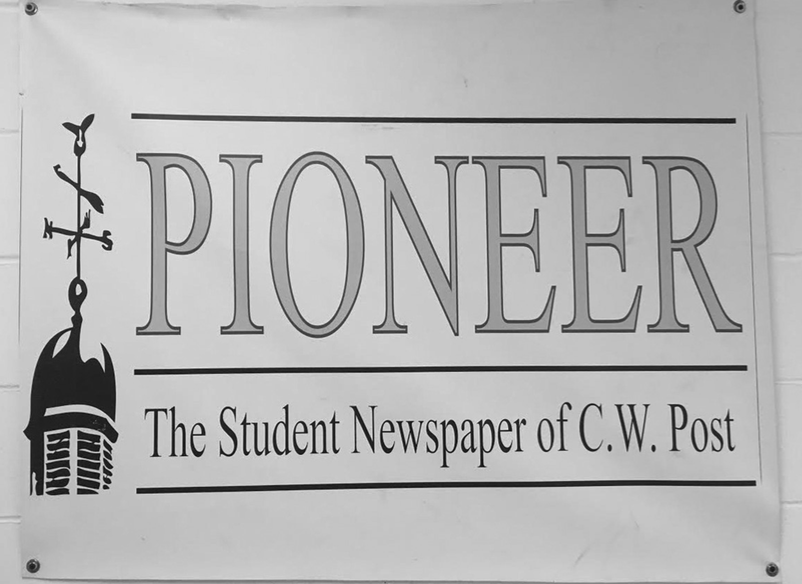Last updated on Feb 9, 2017
To Whom it May Concern,
As an artist who has worked in a variety of fields, I have never forgotten my first professional acting gig; the first cinema to screen one of my films; my first solo exhibition; or the first production of one of my plays. And as a writer who has published seven books, I have never forgotten that as a student at LIU Post in the long ago days before there was a Hillwood Commons, a Tiles Center, or a B. Davis Schwartz Memorial Library, I published my first article in the pages of the Pioneer.

I still regard the Post campus as one of the most exceptional in the world, and I value the fine education I received there as a student of Philosophy, Theatre, and English Literature. I thus want to express my allegiance to, and alliance with, the Pioneer, now that its survival as a journal is being threatened, as is the future of the campus as the locus of a vibrant Liberal Arts education. Lately, LIU has entered educational history in a most unflattering manner, and, as a result, this administration has earned a No Confidence vote by the faculties of both campuses.
Helen Thomas said: “It is our job to seek the truth and put constant pressure on our leaders until we get answers.” No administration devalues an organ of potential dissent unless it has something to hide. During even the most settled times, but especially in times of crisis, the effort to limit the freedom of young journalists to report on what is happening at their own university is the essence of what historian Barbara Tuchman called wooden-headedness. It is doomed to be self-defeating. Meanwhile, the policy of preventing staff from speaking with the Pioneer in an effort to disguise growing dissatisfaction with the current administration insults the integrity of its reporters, its editors, the student body who reads the paper, and the concept and import of good journalism. An administration that pretends that it cannot afford an inexpensively printed hard copy of its own newspaper is further verifying how little it cares for hardworking students who aspire to make the Pioneer the best it can be— and, of course, for the student body who reads it. It also betokens a major misjudgment about the significance to a republic of training young journalists to enter the wider public discourse with voices that are honest, well informed, brave and distinct.
At the same time that it won’t support its own own newspaper, and no longer offers even a minimum stipend to its fine journalists, LIU is offering a six-figure stipend for Steve Israel to be a writer-in-residence on campus. Such a situation is beyond studied indifference: it’s an insult, plain and simple. As a former U.S. Congressman whose district included the Post campus, and as a vocal supporter of Occupy Wall Street, Israel’s first duty at Post should be to express his outrage at how the Pioneer is being treated. He could even donate a portion of his stipend to insure the future of the Pioneer. It doesn’t cost much at all, Steve… and it’s better than students having to Occupy Post!
In Hillwood Commons, a sign on the wall opposite Room 201 (the Pioneer offices) reads: THE STUDENT NEWSPAPER OF C.W. POST. Contemplating this sign, I can’t help reflecting on how the administration has attempted to take the Pioneer away from the students who need and deserve it. Without the minimal funding required to keep it in hard-copy print, and without encouragement to report the full range and depth of campus opinion, the Pioneer, if it survives, will be turned into a paper without a purpose in order to turn Post into a campus without an identity.
Peter Josyph,
Author of Liberty Street: Encounters at Ground Zero; Adventures in Reading Cormac McCarthy; What One Man Said to Another: Talks With Richard Selzer; Cormac McCarthy’s House: Reading McCarthy Without Walls; etc.










Be First to Comment